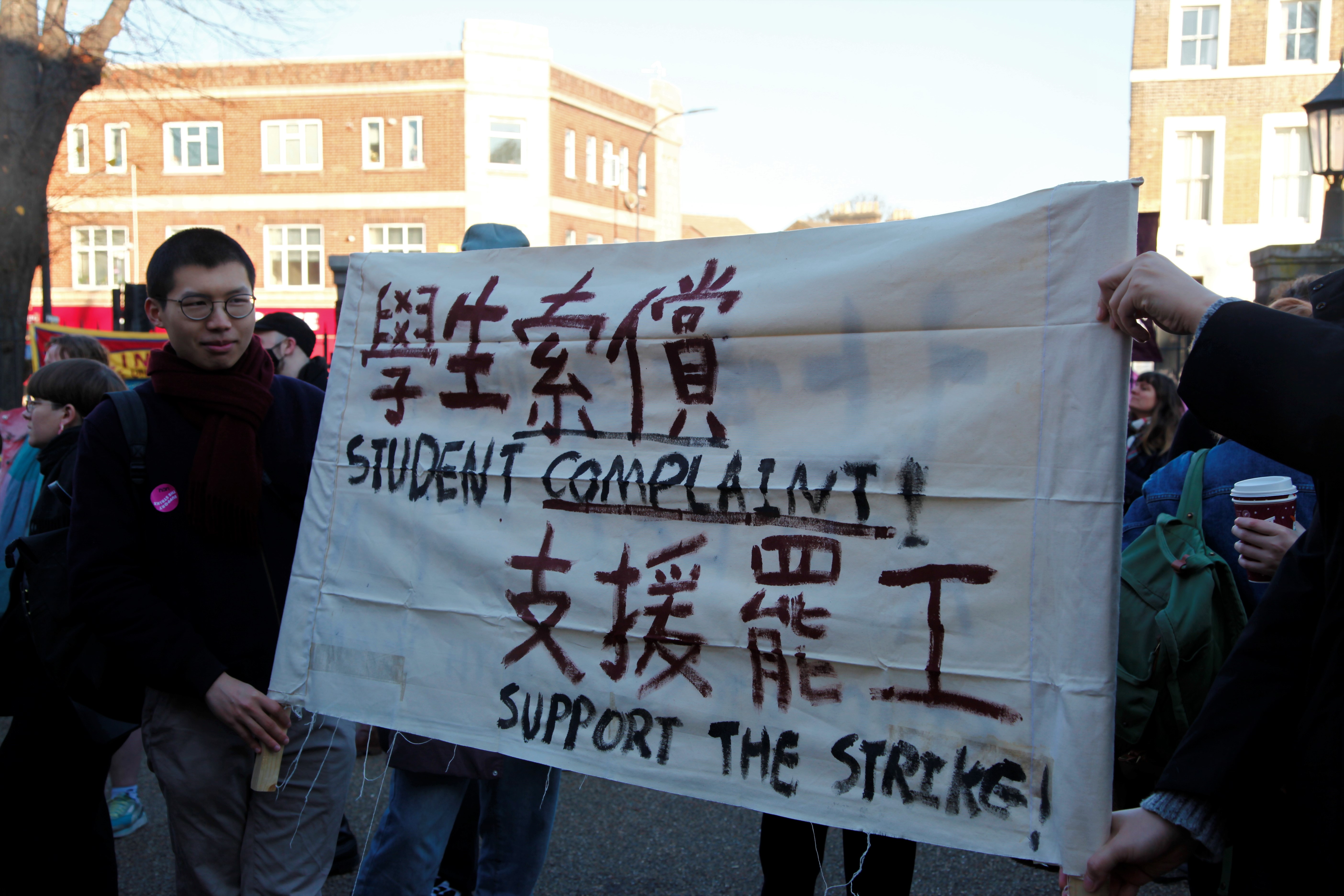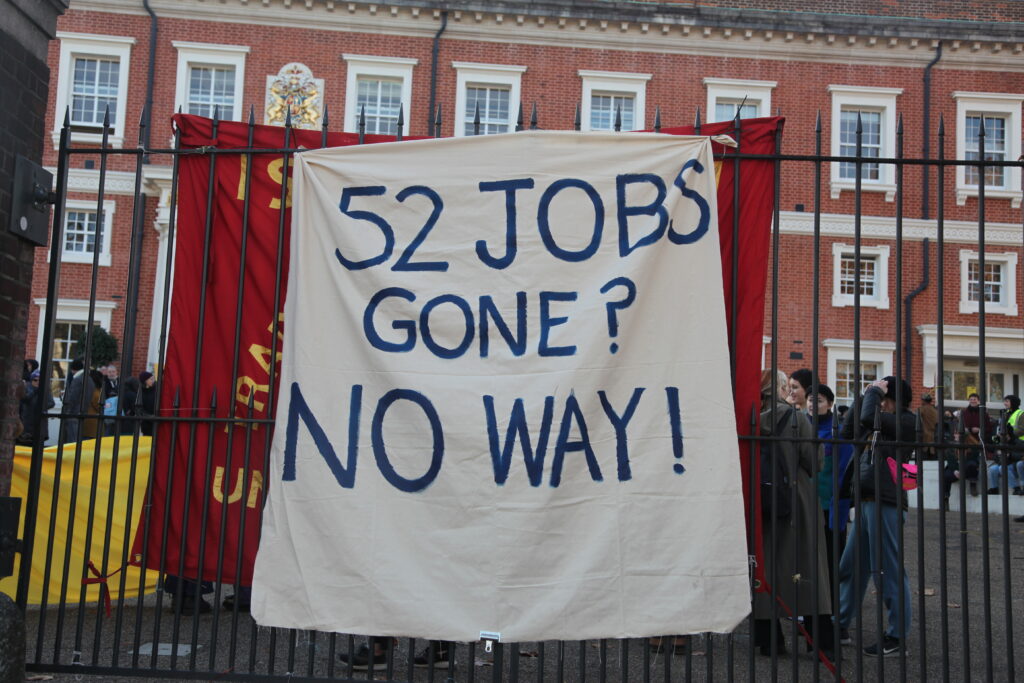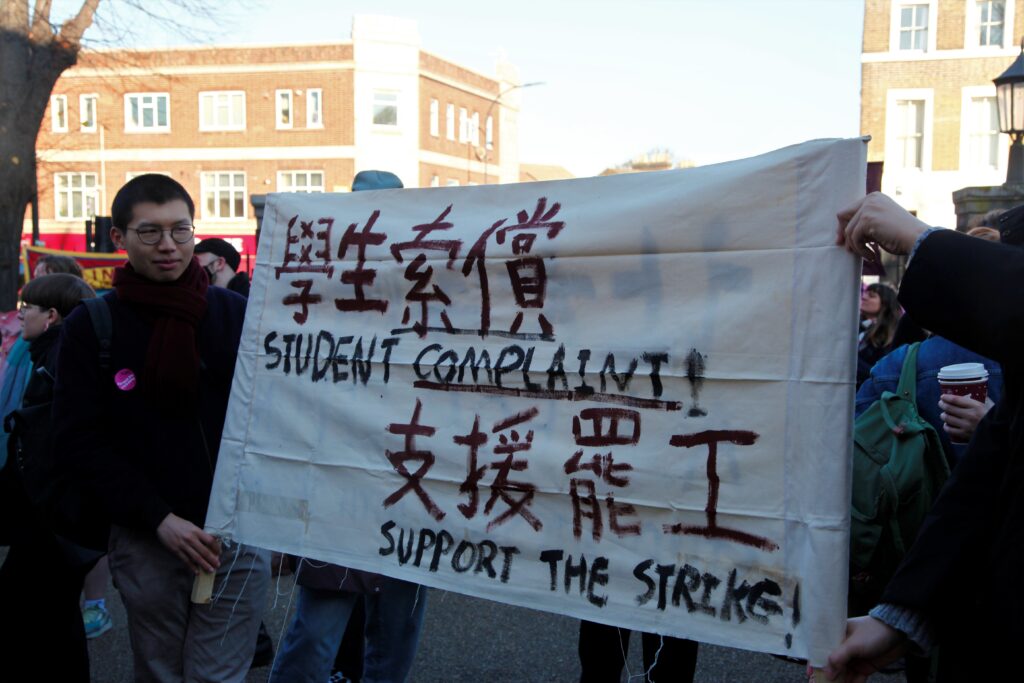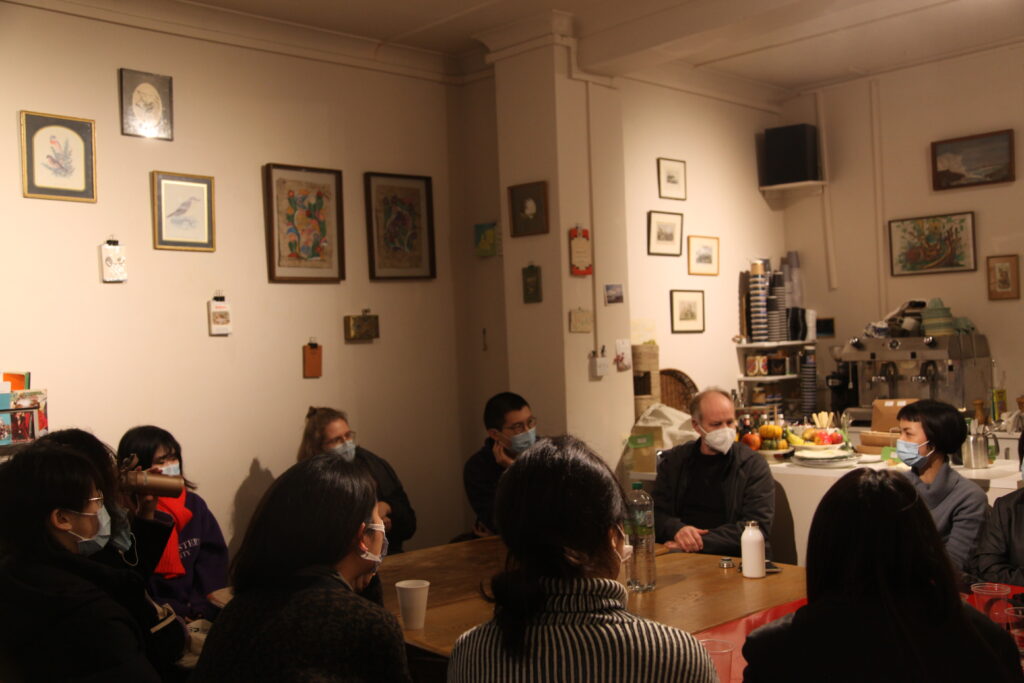

On the second day of the Goldsmiths University College Union (GUCU) strike over potential mass redundancies, some of Goldsmiths’ Chinese students met to discuss the action in a nearby café.
“Everyone has different opinions about the strike, so the conversation among people is essential,” said Liu Weitian, one of the organisers of the discussion.
As Raven News reported two weeks ago, GUCU members voted to take 21 days of strike action from November 23rd to December 13th.
The open discussion talked about Chinese students’ attitude toward the strike and innovative teaching plans during the strike, including teach-out activities.
He Lisen, studying Global Media and Politics at Goldsmiths, said: “The industrial action is necessary because it is not good that the university is putting profits first and it is imperative for students to protect their rights in the strike especially when it comes to their tuition fees.”
Tuition fees for international students (including EU students) are about twice higher than full-time UK students, which is one of the major income sources of Goldsmiths. The three-week strike means students who have paid tuition fees will not receive adequate teaching services as they expected.
“It is important to maintain the discussion about the strike among Chinese students”, Zhang Mengtong, President of Goldsmiths CSSA (Chinese Students and Scholars Association), said. This is a reflection on “what kind of education we want”.
Based on an online survey conducted by Raven News, some Chinese students do not fully understand the reasons behind the strike.
One of the participants of the open discussion felt confused about the strike as an international student newly arriving in the UK and said that discussing the strike with the Goldsmiths Chinese community gave her “a sense of belonging”.
The strike is about the “future direction of this university”, Michael Dutton, Professor of Politics in Goldsmiths, said.
Across the UK, higher education institutes are becoming more and more market-oriented, with teachers and students having less and less power to make decisions about their university.
Informing the Chinese students about the strike is an important first step and the next step is to see how Chinese students can express their opinions and take action to protect their rights as students.
Striking is very uncommon in Chinese society so most Chinese students felt confused about what is their identity in this strike and their connection with the teachers.


